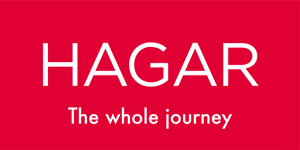 Appointed by the Singapore Inter-Agency Taskforce on Trafficking-In-Persons and the Ministry of Home Affairs, HAGAR conducted its first round of Trafficking In Persons training to the Singapore Police Force in August 2014. Its key purpose was to increase specialised training for frontline officers in the identification of sex and labour trafficking.
Appointed by the Singapore Inter-Agency Taskforce on Trafficking-In-Persons and the Ministry of Home Affairs, HAGAR conducted its first round of Trafficking In Persons training to the Singapore Police Force in August 2014. Its key purpose was to increase specialised training for frontline officers in the identification of sex and labour trafficking.
Singapore is a destination country for sex and labour trafficking and also a transit country for forced labour onboard fishing vessels. This means you might have chanced upon a possible victim without you knowing. But how can we tell who is a victim of trafficking? And is there anything you and I can do about it?
There are some general indicators of victim identification you can observe:
- Evidence of being controlled
- Evidence of an inability to move or leave a job
- Bruises or others signs of battering
- Lack of passport, immigration or identification documentation
- Fear or depression
- Do not know their home or work address
- Be distrustful of the authorities
- Their travel documents are being held by someone else
- Be threatened with being handed over to the authorities
- Let others to speak for them when addressed directly
However, there are some specific indicators that are linked to sexual exploitation, domestic servitude and labour exploitation. The police force plays a vital role in ensuring that an individual’s rights are protected. While the police will never be able to reverse the abuse that happen, they can aid in supporting their journey from victim to survivor.
Since 2012, Singapore has made significant progress in implementing the National Plan of Action led by the Inter-Agency Taskforce to combat trafficking in persons through prevention, prosecution, protection and partnership.
After almost a year of consultations, a new law [1] dedicated at combating human trafficking was successfully passed in Parliament on Nov 3, 2014 prescribing stiff penalties. Starting with tackling these complex issues upstream, the Singapore Government is toughening its stance to deal with such crimes more effectively.
Almost all the time, people ask, “Is there anything I can do to help these victims?” You can make a tangible difference today by supporting their recovery. Your donation will help provide protection, recovery, economic empowerment and reintegration support to start life afresh.
——————–
[1] ![]() First reading of the Prevention of Human Trafficking Bill on 7 October 2014
First reading of the Prevention of Human Trafficking Bill on 7 October 2014
Help us transform lives
Join HAGAR to empower survivors of trafficking and abuse to start a new life.
Help us transform lives
Join HAGAR to empower survivors of trafficking and abuse to start a new life.
Help us transform lives
Join HAGAR to empower survivors of trafficking and abuse to start a new life.
